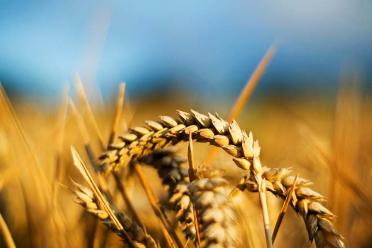Women in Computing: Pilar Corredor Moreno
In our third installment, Pilar Corredor-Moreno, a PhD student in the Saunder’s Group studying wheat yellow rust at EI, shares her fascinating and honest opinions on computing.
In our third installment, Pilar Corredor-Moreno, a PhD student in the Saunder’s Group studying wheat yellow rust at EI, shares her fascinating and honest opinions on computing.
Read on to discover why you shouldn’t fear computing (and why computers might not take over the world after all.)
Computers are a tool. For me is like cooking or driving. Almost everyone can drive a car, some people can fix them and only a few people are able to win Formula 1 races with them.
In my case, I need powerful computers to be able to answer biological questions.
Because it is a changing field, so you get to learn and try new things everyday.

Actually, I got into computing by chance. As many other people, I never thought I had what you need to work in computing. But that's just not true; we all have the potential if we put our minds to it. I got into computing because we're in the ‘omic’ era and that means we generate tons of data that we need to process and store efficiently.
I don't think you need inspiration but motivation. My motivation is to understand yellow rust and stop losing wheat to feed more people. I was born in the era of technology so I am just using all the resources I have available to understand this disease.
Time travelling, to procrastinate without remorse.
You need a lot of self-control to avoid procrastination. It's really easy to get distracted with e-mails and Facebook while you're working.
Of course not! Computers are great but they are a human invention. They are and will be a tool for us. They will never have the human capability to reason and be original. That's why we need great people behind the screen doing awesome stuff with computers.
It was actually wheat. Fighting world hunger is one of the major challenges of this century and at EI we have cutting-edge facilities to work on wheat genomics.

How do we answer the most imminently approaching question of our time: how to feed 9 billion people by 2050? At the heart of this lies an intrinsic discrepancy. A continuously increasing global population must find a way to increase calorie production by 60% in three decades time, while crop yields that once soared above this rise have begun to plateau. We aim to help solve this multi-faceted problem with a far ranging and holistic approach to improving food security.
Part of this challenge can be overcome by studying important food crops such as wheat, which is a major part of our scientific strategy going forwards.
I'm working on wheat yellow rust, trying to understand the host response to the disease using a transcriptomic approach.
I would say Ada Lovelace because she was not only an awesome mathematician and the pioneer of modern computing in a society where men dominated science but she also was a poet!
We need to remember that arts and science are not as far apart as we might think; they both try to explain the world we live in.
I have to say I am not really into video games. Working with computers is not a synonym of playing with consoles. We have to debunk the stereotypes around computer scientists.
I find Mac quite nice for beginners in bioinformatics.
Never let prejudices put you down. I'm tired of hearing "I don't do computers" like they are some kind of secret evil machine you have to be a genius to understand. Computers are not difficult, just give it a try. You might find yourself loving it.
Who knows? Ten years ago we didn't know what a smartphone was and now we have small computers with constant internet connection in our pockets. So I think the future is in the ‘cloud’ and in new and improved mobile devices.